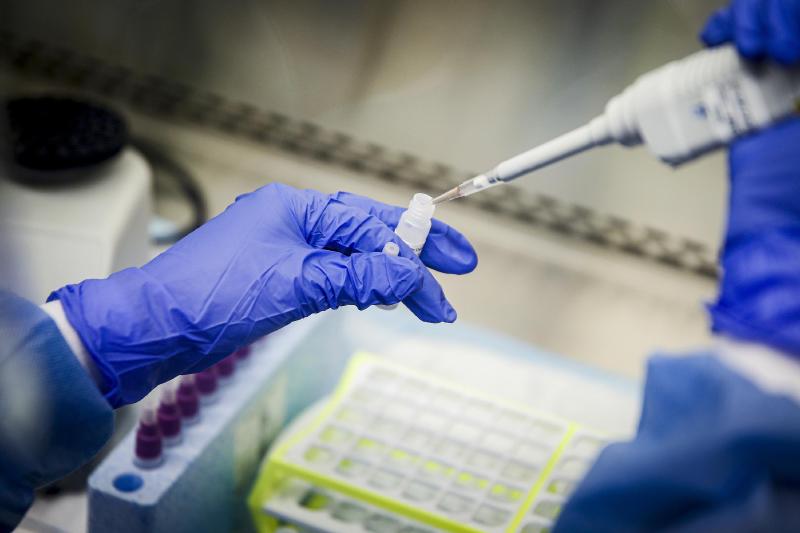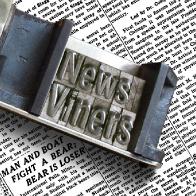Americans' trust in science now deeply polarized, poll shows
By: SETH BORENSTEIN and HANNAH FINGERHUT (AP NEWS)


Americans are not as polarized over science as these journalistic narratives suggest. And, if the reporting is accurate, then the political biases are quite apparent in news reporting.
What is interesting is that a science advisor to President Obama blames Republicans while a science advisor to President Trump blames the inherent messiness and uncertainty within science. Which of these two are expressing a more realistic, rational view of public perception of science?
There needs to be recognition that growing distrust in science, generally, has been a direct result of political scientists assuming the mantle of authority. Al Gore is anything but a scientist yet assumed the mantle of scientific authority to push a strictly political message. Joe Biden is not and never has been a scientist but Biden wields the authority of science for political purposes.
The use of science in political debate over climate change has established a politically polarized perception of science. The pandemic has revealed to the public how science actually works. Scientific certainty really isn't that certain. When science advisors and scientists, themselves, declare pool parties are unsafe but protests are no cause for concern then the political biases within the scientific community cannot be hidden any longer. Science advisors are expressing opinion in the political arena and their opinions are obviously influenced by the politics of the moment.
Science advisors have elevated opinion to the same status as qualified evidence. Scientific opinions have become the source of authority; facts aren't nearly as relevant in shaping policy. The public doesn't need to know anything about science to see and understand that they're just being jerked around.

WASHINGTON (AP) — Republicans' faith in science is falling as Democrats rely on it even more, with a trust gap in science and medicine widening substantially during the COVID-19 pandemic, new survey data shows.
It's the largest gap in nearly five decades of polling by the General Social Survey, a widely respected trend survey conducted by NORC at the University of Chicago that has been measuring confidence in institutions since 1972.
That is unsurprising to more than a dozen scientists reached for comment by The Associated Press, but it concerns many of them.
"We are living at a time when people would rather put urine or cleaning chemicals in their body than scientifically vetted vaccines," University of Georgia meteorology professor Marshall Shepherd told the AP in an email. "That is a clear convergence of fear, lack of critical thinking, confirmation bias and political tribalism."
Science used to be something all Americans would get behind, Rice University historian Douglas Brinkley said.
"But we now see it falling prey to the great partisan divide," he said. "The world of science should be a meeting house where right and left can agree on data. Instead, it's becoming a sharp razor's edge of conflict."
Overall, 48% of Americans say they have "a great deal" of confidence in the scientific community, the 2021 General Social Survey data shows. Sixty-four percent of Democrats say that, compared with roughly half as many Republicans, 34%. The gap was much smaller in 2018, when 51% of Democrats and 42% of Republicans had high confidence.
The poll also found a gap emerging on confidence in medicine, driven primarily by increasing confidence among Democrats. Forty-five percent of Democrats said they had a great deal of confidence in medicine, compared with 34% of Republicans.
The deepening polarization was not evident for other institutions asked about on the poll, according to Jennifer Benz, deputy director of The Associated Press-NORC Center for Public Affairs Research.
"It's certainly plausible that this is a result of how politicized the pandemic became in the months between when it emerged and when the survey ran," Benz said. "It is definitely a stark change for these particular trends on confidence in scientific leaders and leaders in medicine, to see this degree of polarization."
The data suggest Republicans and Democrats are following the cues of their leaders, said Anthony Leiserowitz, director of the Yale Program on Climate Change Communication.
"We've seen so much criticism (and worse) leveled at medical experts since the beginning of the pandemic from the former president, other Republican leaders and the conservative media, and just the opposite from the current president, Democratic leaders, and the mainstream and liberal media," Leiserowitz told the AP in an email.
Kelvin Droegemeier, former science adviser to President Donald Trump, said he thinks the pandemic increased the general public's insight into how scientific research works but the ever-evolving science probably seemed chaotic at times and the urgency of the pandemic complicated policymaking.
"We hear 'follow the science,' but which results? The challenge lies in how to best use the scientific results, recognizing that what appears to be an 'answer' one day may be overturned, wholly or partly, another day," Droegemeier told the AP in an email.
That messiness, sometimes weak communication and political philosophies play into the trust gap, said Marcia McNutt, president of the National Academy of Sciences, which was set up by President Abraham Lincoln to offer the federal government expert advice.
Scientists and policy makers tend to be conservative — not politically but in terms of being cautious and wary of risk — pushing safety, masks and vaccines while "Republicans as a group value individual liberty," McNutt said.
"So no wonder that Republicans are less supportive of the scientifically conservative decisions in the face of uncertainty," she told the AP in an email.
John Holdren, who was President Barack Obama's science adviser, said he blames GOP leaders' "nonstop denial and deception."
The consequence of declining trust in the scientific community among Republicans is clear: AP-NORC polling shows Republicans continue to be less likely than Democrats to be vaccinated.
Sudip Parikh, chief executive officer of the American Association for the Advancement of Science, the world's largest general science organization, said it's clear that science has become a wedge issue for many politicians. Some have tied themselves to it, he said, and others have seen value in shooting at it "because it helps them politically."
"It's easy in the abstract to trust science," Parikh said. "When there are things that come out of that the data that challenge what you are hoping the policy answer would be, you get divergence from wanting to trust the science."
Parikh said he found it ironic that much of the distrust in science is spread by technology — social media, smartphones — that only exists because of scientific advances.
Famed astrophysicist Neil deGrasse Tyson agreed: "The struggle continues, trying to get the general public to embrace all of the science the way they unwittingly embrace the science in their smartphones."
The General Social Survey has been conducted since 1972 by NORC at the University of Chicago. Sample sizes for each year's survey vary from about 1,500 to about 4,000 adults, with margins of error falling between plus or minus 2 percentage points and plus or minus 3.1 percentage points. The most recent survey was conducted Dec. 1, 2020, through May 3, 2021, and includes interviews with 4,032 American adults. Results for the full sample have a margin of error of plus or minus 2 percentage points.






A smartphone doesn't express opinions based on guesses; science advisors do. A smartphone doesn't impose mandates on people; scientists do. A smartphone doesn't seek political support for additional funding; scientists do. A smartphone doesn't act to benefit itself; scientists do.
A smartphone does what it's supposed to do; scientists don't.
Scientists tend to go where the scientific method leads (that's why smartphones exist).
Far right-wing anti-science folk go where political/religious fascism leads.
As I always say, follow the evidence to where it leads, not to where you want it to go.
The odd thing is that Fascists were staunch supporters of science - and - used science to argue for the legitimacy of Fascism.
Use its algorithms to connect one to the like-minded, the dullards. Great minds do not think alike.
A smartphone was specifically engineered to allow people to communicate with who they want. A smartphone was not engineered to censor people; that's what scientist do.